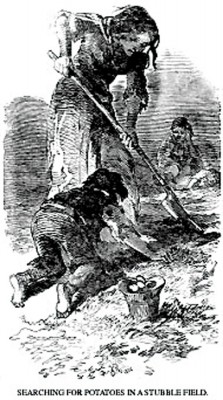Search Results for 'British government'
48 results found.
Carthaginians’ ‘sense of hope and release’
FRANK MCGUINNESS’ powerful play Carthaginians, written as an elegy for the dead of Bloody Sunday, comes to the Town Hall Theatre next week in a new production from Derry’s Millennium Forum directed by one of Ireland’s best known actors, Adrian Dunbar.
Fear and loathing in east Galway
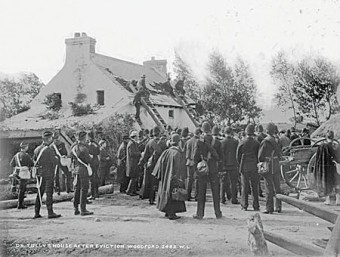
Following the extensive publicity and extraordinary use of more than 700 military, police, emergency men and bailiffs, to evict five families from the marquis of Clanricarde’s estate, the people of Woodford and all of east Galway were in a state of shock, anger and fear. It was now clear that Clanricarde would use every method within his considerable powers to evict any of his tenants who refused to pay their rent. Despite pleas for a rent reduction because of successive bad weather, he refused to even consider it. He scoffed at John Dillon’s Plan of Campaign, supported by the Land League, which urged tenants to stick together, and to refuse to pay unreasonable rent.
The day war came to Galway
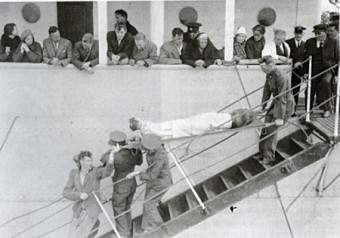
On Monday morning September 4 1939, the Galway harbour master Capt T Tierney was listening to a radio message from the Norwegian freighter Knute Nelson to say that it was steaming to Galway with 430 survivors from the Athenia, which was sunk by torpedo 250 miles north-west of Inishtrahull Island, off the Donegal coast. There were injuries among the survivors. Many were distressed and suffering from hypothermia. It requested urgent assistance.
Attempts made in 1847 to establish fishing industry in the west
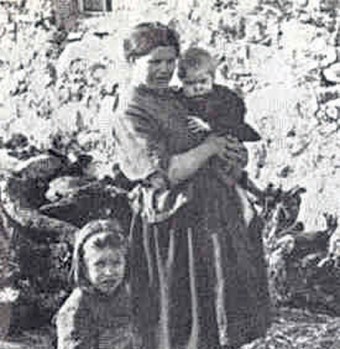
The tragedy of the Great Famine was compounded by the fact that our seas were full of fish, yet the lack of a sustainable fishing industry, and a general dislike of fish among the peasantry, left untouched this abundant food source. As the appalling statistics of hunger, riots, death, fever and evictions began to penetrate the British government, some action was at last taken*. Unsuitable as it was for Irish palates, vast quantities of American maize was imported, and distributed. Public relief schemes, such as canal-building and new roads were introduced to provide some employment, and efforts were made to establish a fishing industry.
Hundreds of thousands starved while the sea teemed with fish
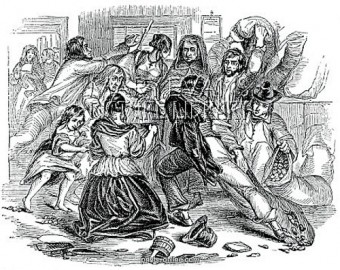
Reading William Henry’s book Famine - Galway’s Darkest Days*, I was struck yet again by the fact that while thousands of people died of starvation in the west of Ireland, when whole communities abandoned their homes in a desperate search for food, our seas were boiling with fish. The author tells us that in Galway at the beginning of the Great Famine in 1845 the Claddagh fishermen fiercely protected their fishing rights in the Bay, which they regarded as their exclusive property. But as the famine dragged on to the end of the decade the Claddagh fishermen had no means left for catching fish. They had pawned their boats and fishing equipment for food. The historian Cecil Woodham-Smith in her classic account of the Great Famine**, tells us that on January 9 1847, ‘all boats were drawn up to the quay wall, stripped to the bare poles, not a sign of tackle or sail remaining....not a fish was to be had in the town, not a boat was at sea.’
When the king came to town
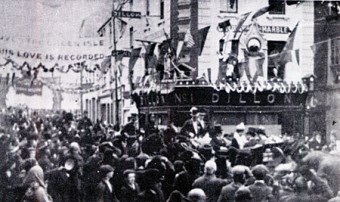
King Edward VII was known as ‘Peacemaker’ for his role in fostering good relations between Britain and France, he was renowned for his politeness and good manners, and throughout the continent he was affectionately called the ‘Uncle of Europe’.
Ballinasloe commemoration to mark thirtieth anniversary of Sands’ death
Ballinasloe Sinn Fein will holding its annual Hunger Strike commemoration and vigil in St Michael’s Square, Ballinasloe today from 5pm to 8pm.
Ruane hits out at Queen’s Mayo invitation
A vote by Castlebar Town Council in favour of inviting Queen Elizabeth II to the Mayo Peace Park for an official state visit to Ireland mooted for 2012 has been condemned by a local Sinn Fein councillor.
